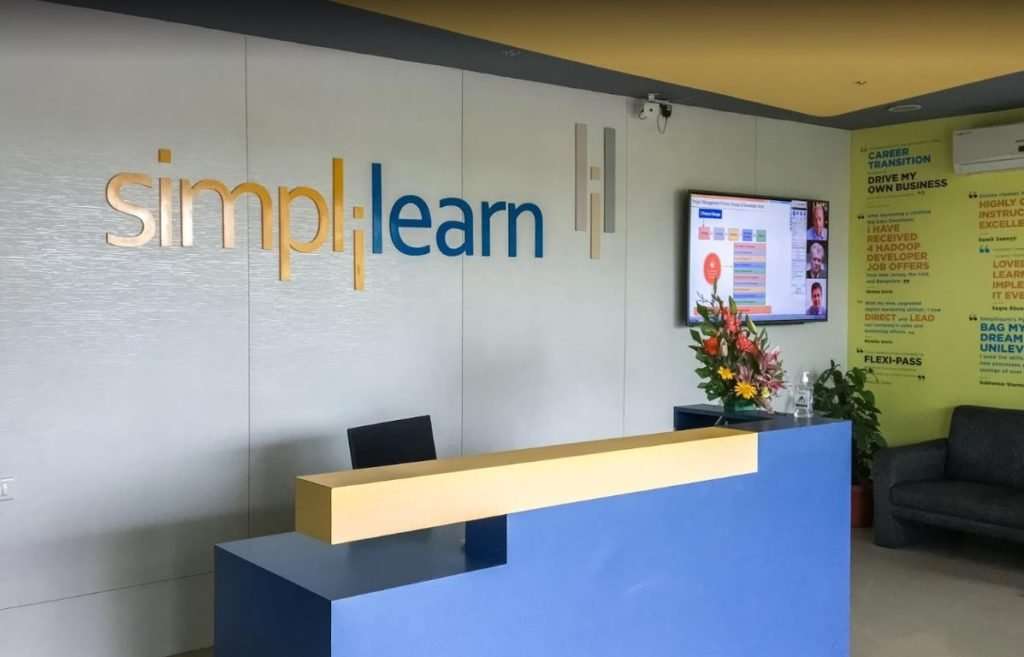Explore how the rise of Nanodegree is transforming the landscape of education. Discover how online education is disrupting traditional degrees and shaping the future of learning.
Embracing a New Era of Education
The traditional education system has long been the go-to route for individuals seeking to acquire knowledge and skills. However, with the advent of the internet and technological advancements, a new player has emerged on the scene – Nanodegrees. In this article, we will delve into the rise of Nanodegrees and explore how online education is disrupting traditional degrees, revolutionizing the way we learn, and opening up new opportunities for learners worldwide.
The Rise of the Nanodegree: A Paradigm Shift
What are Nanodegrees?
Nanodegrees are specialized online educational programs that offer individuals the opportunity to gain job-relevant skills and knowledge in specific fields. These programs are typically provided by online learning platforms and are designed to be practical and industry-focused. Nanodegrees combine instructional content, interactive exercises, hands-on projects, and personalized support to deliver a comprehensive learning experience.
Importance of Nanodegrees in Today’s Job Market
In today’s job market, the demand for specific skills and expertise is rapidly evolving. Employers seek candidates who possess practical knowledge and can immediately contribute to their organizations. Nanodegrees play a crucial role in bridging the skills gap by offering focused training in areas that are in high demand. These programs provide individuals with a competitive edge, equipping them with the skills necessary to thrive in their chosen industries.
A Solution for the Fast-Paced Digital World
In the rapidly evolving digital landscape, traditional degrees often struggle to keep pace with the demand for up-to-date skills. Nanodegrees bridge this gap by offering targeted, industry-relevant courses that cater to the needs of the ever-changing job market. They provide learners with practical skills that can be immediately applied in real-world scenarios, making them highly valuable in today’s competitive professional landscape.
Flexibility and Accessibility
One of the key advantages of Nanodegrees is their flexibility and accessibility. Traditional degrees often require significant time commitments and may not be feasible for individuals already in the workforce or those with other responsibilities. Nanodegrees, on the other hand, can be pursued online, allowing learners to study at their own pace, wherever and whenever it suits them. This flexibility has made education more accessible to a diverse range of individuals, including working professionals, parents, and individuals from remote areas.
Online Education: The Catalyst for Change
Advancements in Technology and Learning Platforms
The rise of online education has been a driving force behind the popularity of nanodegrees. With the proliferation of learning platforms and advancements in technology, online education has become a seamless and immersive experience. Interactive videos, gamification, virtual simulations, and collaborative learning environments have revolutionized the way knowledge is acquired and retained.
Personalized Learning Experience
Online education leverages data-driven insights and algorithms to personalize the learning experience for individuals. Through adaptive learning techniques, Nanodegree programs can identify learners’ strengths and weaknesses, tailoring the curriculum to meet their specific needs. Engagement, motivation, and overall learning outcomes are improved by this personalized approach.
Bridging the Industry-Education Gap
Traditional degrees often face criticism for not adequately preparing students for the job market. Online education, particularly through these programs, has made significant strides in addressing this gap. By collaborating with industry partners, online platforms ensure that the skills taught align with industry requirements. Learners gain practical knowledge and industry-specific skills, enhancing their employability and bridging the gap between academia and the professional world.
What are the Different Nanodegree Programs?
Technology and Programming Nanodegrees

Front-End Web Development Nanodegree
Front-End Web Development focuses on equipping individuals with the skills needed to create visually appealing and interactive websites. The program covers the following key areas:
- Mastering HTML and CSS: Participants learn the fundamentals of HTML (Hypertext Markup Language) and CSS (Cascading Style Sheets) to structure and style web pages effectively.
- Building Responsive Websites: This module teaches the principles of responsive design, enabling participants to create websites that adapt seamlessly to different devices and screen sizes.
- Implementing JavaScript and Frameworks: Participants delve into JavaScript, a versatile programming language used to add interactivity and dynamic elements to web pages. They also explore popular frameworks like React or Angular to streamline the development process.

Data Science Nanodegree
The Data Science program is designed to equip individuals with the skills necessary to extract insights and make data-driven decisions. The program covers the following key areas:
- Exploratory Data Analysis: Participants learn how to analyze and visualize data using statistical techniques and data visualization libraries. They gain proficiency in extracting meaningful information from raw data.
- Data Wrangling and Cleaning: This module focuses on data cleaning, transforming, and structuring to ensure the data is suitable for analysis. Participants learn various techniques to handle missing data, outliers, and inconsistencies.
- Machine Learning and Predictive Analytics: Participants dive into machine learning algorithms and techniques to build predictive models. They gain hands-on experience in training models, evaluating their performance, and applying them to real-world problems.
Business and Marketing Nanodegrees

Digital Marketing Nanodegree
The Digital Marketing program aims to develop individuals’ skills in leveraging digital channels for marketing purposes. The program covers the following key areas:
- Social Media Marketing Strategies: Participants learn how to create effective social media marketing campaigns, engage with target audiences, and analyze social media metrics to optimize performance.
- Search Engine Optimization (SEO) Techniques: This module focuses on optimizing website content and structure to improve organic search rankings. Participants learn keyword research, on-page optimization, link building, and monitoring website performance.
- Analyzing and Optimizing Campaign Performance: Participants gain insights into analyzing marketing campaign performance using key metrics and analytics tools. They learn how to interpret data to make data-driven decisions and optimize marketing strategies.

Product Management Nanodegree
The Product Management program aims to equip individuals with the skills needed to effectively manage and launch successful products. The program covers the following key areas:
- Product Development Lifecycle: Participants gain a comprehensive understanding of the product development process, from ideation to launch. They learn about market research, competitive analysis, product strategy, and roadmap creation.
- User Research and Testing: This module focuses on user-centric design principles, conducting user research, and usability testing. Participants learn how to gather user feedback, iterate on product designs, and ensure user satisfaction.
- Agile Project Management Techniques: Participants learn agile methodologies, such as Scrum or Kanban, to manage product development efficiently. They understand how to collaborate with cross-functional teams, prioritize tasks, and deliver high-quality products within time constraints.
These Nanodegree programs provide individuals with specialized knowledge and practical skills in their respective fields, preparing them for in-demand careers and industry-relevant challenges. Whether one’s interest lies in technology and programming or business and marketing, Nanodegrees offers a comprehensive learning experience to unlock career potential.
Nanodegree Learning Experience
Online Learning Platform
Accessing Course Materials and Resources: Nanodegree programs are delivered through user-friendly online learning platforms, such as Udacity. Participants gain access to a comprehensive range of course materials, including video lectures, interactive quizzes, coding exercises, and supplementary resources. These materials are available 24/7, allowing individuals to learn at their own pace and revisit the content whenever needed.
Engaging with Instructors and Peers: Online learning platforms provide opportunities for individuals to interact with instructors and peers, fostering a collaborative and supportive learning environment. Through discussion forums, virtual classrooms, and online chat tools, participants can ask questions, seek clarification, and engage in meaningful discussions. Instructors and mentors are available to provide guidance, offer feedback, and address any concerns throughout the program.
Structure and Duration of Nanodegree Programs
Course Curriculum and Modules: Nanodegree programs are thoughtfully structured to provide a comprehensive learning experience. The curriculum is divided into modules that cover specific topics or skills within the chosen field. Each module builds upon the previous one, gradually expanding participants’ knowledge and expertise. The course curriculum is designed in collaboration with industry experts, ensuring its relevance and alignment with industry standards.
Estimated Time Commitment: The duration of Nanodegree programs may vary depending on the specific program and the individual’s pace of learning. On average, participants can expect to dedicate approximately 10-15 hours per week to complete the program successfully. However, the flexibility of online learning allows individuals to adjust their study schedules based on their availability and personal commitments.
Hands-on Projects and Real-world Applications
Developing a Portfolio of Work: Nanodegree programs emphasize hands-on learning through the completion of projects. Participants are given opportunities to apply the concepts and skills learned in the program to real-world scenarios. By working on projects, individuals build a portfolio of work that showcases their practical abilities to potential employers. This portfolio serves as tangible evidence of their competence and can significantly enhance their job prospects.
Applying Skills to Solving Industry-relevant Problems: Nanodegree programs prioritize the practical application of skills to solve industry-relevant problems. Participants work on projects that simulate real-world challenges, enabling them to develop a problem-solving mindset and gain experience in tackling complex issues. This practical experience equips individuals with the confidence and expertise needed to succeed in their chosen field.
The learning experience in Nanodegree programs is designed to be immersive, engaging, and relevant to the industry. By providing access to high-quality course materials, facilitating interaction with instructors and peers, structuring the curriculum effectively, and emphasizing hands-on projects, Nanodegree programs empower individuals to develop practical skills as well as the self-assurance to succeed in their careers.
How much Nanodegree cost?
Pricing Models for Nanodegree Programs: Nanodegree programs offer flexible pricing models to accommodate different budgetary needs. The pricing structure may vary depending on the specific program and duration. Some common pricing models include:
Monthly Subscription: Participants pay a monthly fee, granting them access to the program’s content and resources for as long as they remain subscribed. This model allows individuals to progress at their own pace and offers flexibility for those with limited upfront financial resources.
Full Program Payment: Participants have the option to pay the full program fee upfront, often at a discounted rate compared to the monthly subscription. This model is suitable for individuals who prefer to make a one-time payment and have the commitment to complete the program within a specific timeframe.
Scholarships and Financial Aid Opportunities
Nanodegree programs often provide scholarships and financial aid opportunities to make education more accessible. These scholarships can be merit-based, need-based, or focused on underrepresented groups in the field. Scholarships may cover partial or full program fees, allowing individuals to pursue their educational goals with reduced financial burdens. Additionally, financial aid options such as installment plans or payment assistance programs may be available to support individuals who require additional financial flexibility.
Employer Sponsorship and Reimbursement Programs
Many companies recognize the value of upskilling their employees and offer sponsorship or reimbursement programs for professional development, including Nanodegree programs. Individuals working for such companies may be eligible for financial support to cover some or all of the program fees. Employers often view these programs as investments in their employee’s skills and the company’s overall growth. Employees interested in Nanodegree programs are encouraged to explore their company’s policies regarding education and professional development benefits.
It’s important to note that the cost and financial aid options can vary between different Nanodegree programs and regions. Individuals interested in pursuing a Nanodegree program should thoroughly research the pricing models and financial aid options available for the specific program they wish to enroll in. The goal is to ensure that cost does not become a barrier and that individuals can access the educational opportunities they need to unlock their career potential.
Frequently Asked Questions (FAQs)
Q. How do I choose the right Nanodegree program for my career goals?
Choosing the right Nanodegree program involves considering your career goals, interests, and the skills you want to develop. Take into account your current experience and the knowledge you wish to gain. Research the program’s curriculum, learning outcomes, and industry relevance. Read reviews and testimonials from past participants to understand their experiences. Additionally, you can consult with career advisors or mentors who can provide guidance based on your specific career aspirations.
Q. Can I complete a Nanodegree program while working full-time?
Yes, Nanodegree programs are designed to be flexible and accommodate individuals who are working full-time or have other commitments. The self-paced nature of the programs allows you to study at your own convenience. You can allocate time outside of working hours, during weekends, or whenever you have free time to complete the program. It’s important to assess your schedule and ensure you can commit to a certain number of hours per week to make progress and successfully complete the program within the estimated timeframe.
Q. Are Nanodegree programs recognized by employers?
Yes, Nanodegree programs are recognized and respected by many employers. These programs are developed in collaboration with industry experts, ensuring that the curriculum aligns with industry standards and the skills in demand. Employers value the practical nature of Nanodegree programs, as they emphasize hands-on projects and real-world applications. However, it’s important to note that while Nanodegree programs can enhance your skills and employability, the recognition may vary among employers, industries, and regions.
Q. What is the typical time commitment required for a Nanodegree?
The time commitment for a Nanodegree program can vary depending on the specific program and your individual pace of learning. On average, participants can expect to dedicate approximately 10-15 hours per week to successfully complete a Nanodegree program. This estimate provides a guideline, but the actual time commitment may vary based on your prior knowledge, learning style, and the complexity of the program’s content.
Q. How does the project-based learning approach benefit me?
The project-based learning approach in Nanodegree programs offers several benefits. By working on hands-on projects, you gain practical experience and apply the concepts learned throughout the program. This approach enhances your problem-solving skills, critical thinking abilities, and ability to work on real-world challenges. Additionally, the projects you complete can be compiled into a portfolio, which showcases your practical skills to potential employers and helps you stand out in the job market.
Q. Can I switch Nanodegree programs if I change my career focus?
Yes, depending on your circumstances and career goals, you can switch Nanodegree programs if you change your career focus. While it’s advisable to choose a program aligned with your career goals from the beginning, circumstances may change over time. In such cases, you can explore other Nanodegree programs that align with your new career focus and leverage the skills you have already gained. Keep in mind that program prerequisites and additional preparation may be required when switching to a different program.
Q. Are there any prerequisites for enrolling in a Nanodegree program?
Nanodegree programs have varying prerequisites depending on the program’s complexity and focus. Some programs may have specific prerequisites, such as prior programming knowledge or familiarity with certain concepts. It’s important to review the program requirements and prerequisites before enrolling to ensure you have the necessary background knowledge to succeed in the program. If you lack the prerequisites, you may need to complete additional courses or gain relevant experience before starting the Nanodegree program.
Q. How does Udacity provide personalized support and feedback?
Udacity provides personalized support and feedback through various channels. Instructors and mentors are available to answer questions, provide guidance, and offer support throughout the program. You can engage with instructors and peers through discussion forums, where you can seek clarification, share insights, and collaborate on projects. Additionally, Udacity’s learning platform often includes features such as code reviews, project evaluations, and personalized feedback on your progress, ensuring you receive individualized attention and support.
Q. Can I access course materials and resources after completing a Nanodegree?
Yes, after completing a Nanodegree program, you can generally continue to access the course materials and resources. This allows you to revisit the content, review concepts, and refresh your knowledge whenever needed. Access to the course materials and resources is typically available for an extended period, allowing you to continue learning and referring back to the content even after obtaining your Nanodegree certificate.
Q. What is the process for receiving a Nanodegree certificate?
Upon successful completion of a Nanodegree program, you will receive a Nanodegree certificate. The specific process may vary depending on the platform or institution offering the program. Generally, you need to fulfill the program’s requirements, which typically include completing all the required projects and meeting the minimum passing criteria for assessments. Once you have met these requirements, you can request your certificate, which is usually provided in a digital format that can be shared and added to your professional portfolio.
Remember to check the specific guidelines and processes provided by the Nanodegree program you are enrolled in to ensure a smooth and timely certificate issuance process.
Conclusion
Encouragement to Take the Next Step in Career Advancement
If you’re looking to advance your career, a Nanodegree program can be a transformative step toward achieving your goals. By enrolling in a Nanodegree program, you gain access to a comprehensive and industry-relevant curriculum, personalized support, and a vibrant community of learners. The practical nature of these programs empowers you to develop the skills that employers seek, and the flexibility allows you to learn at your own pace. Whether you’re aiming to enter a new field, enhance your existing skills, or stay competitive in a rapidly evolving industry, a Nanodegree program can provide you with the tools and knowledge to succeed.
Now is the time to take the next step in your career advancement. Research and explore the various Nanodegree programs available, considering your career goals and interests. Assess the pricing models and financial aid options that suit your needs. Choose a program that aligns with your aspirations and embark on a transformative learning journey. With dedication, commitment, and the support of the Nanodegree program, you can unlock your full potential and achieve the career success you desire.
Invest in yourself and seize the opportunity to gain valuable skills, expand your professional network, and open doors to exciting career prospects. The path to unlocking your career potential starts with a Nanodegree program. Take that step today and embark on an enriching educational experience that will shape your future.




